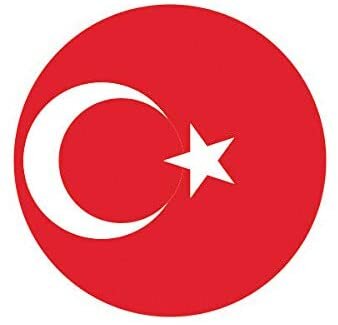Effective EMDR Therapy Dubai - Restore Emotional Well-Being
Eye Movement Desensitization and Reprocessing (EMDR) is an effective, innovative solution for trauma and stress-related disorders like PTSD and anxiety. It can be a transformative experience, leading to significant changes in one's emotional well-being. EMDR therapy can help people confront and overcome fears, break free from the cycle of trauma, and restore a sense of control, normalcy, and healing after traumatic events.
Read on to discover everything you need to know about EMDR therapy in Dubai - how it works, its effectiveness, and selecting the right clinician for you.
Our mental health professionals are here to help you, whether you need to heal or want to thrive.
Get in touch to find out how we can help you. Contact us however you feel most comfortable, for example Whatsapp message us, or feel free to call us on +971 56 895 2347. You can also email or simply send us a query via our online form. Instagram message, Facebook chat… whatever works best for you!
Our goal is to make you comfortable.
What is EMDR Therapy?
It is designed to alleviate the distress associated with traumatic memories. The idea behind this therapy is that we experience symptoms when trauma is not processed properly.
The goal of this therapy Dubai is to fully process these traumatic memories. This reduces their lingering effects and allows individuals to develop more adaptive coping mechanisms. EMDR uses bilateral stimulation, such as eye movements, taps, or tones, to activate the brain's information processing system.
EMDR psychology and therapy is suitable for both adults and children. It doesn't require talking in detail about the distressing issue or completing homework between sessions. This makes it a unique and flexible approach to mental health treatment.
The Origins and Development of EMDR
It was developed by Francine Shapiro in 1987. Shapiro made the discovery that eye movements can reduce the intensity of disturbing thoughts under certain conditions. This led to the development of EMDR as a comprehensive psychotherapy approach.
Over the years, it has gained recognition as an effective form of trauma treatment. Organizations such as the American Psychological Association and the World Health Organization endorse it. Today, it is used worldwide to treat a variety of mental health conditions, including PTSD, anxiety, and depression.
How Does EMDR Work? The Eight Phases Explained
EMDR therapy is a structured treatment that unfolds in eight phases. It's based on the Adaptive Information Processing model. This model suggests that symptoms arise when traumatic experiences are inadequately processed.
The therapy uses bilateral stimulation, such as eye movements, taps, or tones. This stimulation activates the brain's information processing system. The goal is to fully process traumatic memories, reducing their lingering effects.
EMDR therapy does not require talking in detail about the distressing issue. Nor does it require homework between sessions. This makes it a unique approach to trauma treatment.
Phase 1: History and Treatment Planning
The first phase involves history-taking. The psychologist will gather information about the client's past, focusing on traumatic memories. This phase helps to create a treatment plan that targets these memories.
Phase 2: Preparation
During the preparation phase, therapists will explain the process to their client. The client is taught a variety of stress reduction techniques. These techniques can be used during and between sessions to manage emotional distress.
Phases 3-6: Assessment to Body Scan
The next four phases involve assessment, desensitization, installation, and body scan. In the assessment phase, the therapist identifies the specific memories that will be targeted. The desensitization phase involves the use of eye movements or other bilateral stimulation to process these memories.
The installation phase focuses on reinforcing positive beliefs. The body scan phase involves the client identifying any residual physical sensations related to the traumatic memory.
Phases 7-8: Closure and Reevaluation
The final two phases are closure and reevaluation. Closure ensures the client leaves each session feeling better than when they arrived. The reevaluation phase occurs at the beginning of subsequent sessions to review progress and plan the next steps.
EMDR Effectiveness and What It Can Treat
EMDR therapy is an effective and evidence-based treatment for a range of stress-related disorders. These include PTSD, anxiety, and depression. It's also beneficial for those who have experienced traumatic events. Research shows that EMDR can provide results in a shorter time frame compared to traditional forms of therapy.
EMDR therapy sessions can be an effective psychological treatment for individuals who have not responded to other therapy modalities. It can help individuals develop a more positive self-image and outlook on life. EMDR therapy can be particularly effective for first responders and others with high exposure to traumatic events.
It's important to note that EMDR is not a magic cure. It may not be effective for everyone. However, for many, it can be a transformative experience, leading to significant changes in emotional well-being.
EMDR Therapy in Dubai: Adapting to Cultural Contexts
EMDR therapy in Dubai is available through various licensed practitioners and mental health clinics. It is also important to find a licensed clinician that can adapt the therapy to the cultural and linguistic needs of clients.
Potential Side Effects and Considerations
EMDR therapy is generally considered safe, but it's not without potential side effects. Some clients may experience heightened emotions or vivid dreams as the brain processes traumatic memories. These side effects are typically temporary and subside as the therapy progresses.
It's important to note that EMDR is not a magic cure, and it may not be effective for everyone. The therapy should only be performed by a trained and licensed mental health professional. Always discuss potential risks and benefits with your therapist before starting EMDR therapy.
Choosing the Right EMDR Therapist in Dubai
When seeking EMDR therapy in Dubai, it's crucial to find a licensed practitioner who adheres to the EMDR International Association's guidelines and ethical standards. The therapist should be trained in EMDR and have experience with your specific issues.
Thrive Specialists in EMDR
Dr. Elif Celebi
Licensed Psychologist
Dr. Elif Celebi is a DHA-licensed and US-trained Clinical Psychologist with 12 years of post-qualification experience. She has a particular interest in using mindfulness, emotion regulation and other evidence-based approaches to balance compassion, acceptance and change. Dr. Elif clinical expertise includes working with depression, anxiety, trauma, adjustment/life transitions, grief and loss, borderline personality disorder, and dissociation.
Joslin Gracias, M.A.
Licensed Psychologist
Joslin is a CDA-licensed psychologist. She holds an M.A. in Clinical Psychology from S.N.D.T. University in India. Joslin works with adolescents, adults, and couples who are experiencing depression, anxiety, relationship difficulties, trauma, and burnout/stress.
Our mental health professionals are here to help you, whether you need to heal or want to thrive.
Get in touch to find out how we can help you. Contact us however you feel most comfortable, for example Whatsapp message us, or feel free to call us on +971 56 895 2347. You can also email or simply send us a query via our online form. Instagram message, Facebook chat… whatever works best for you!


























